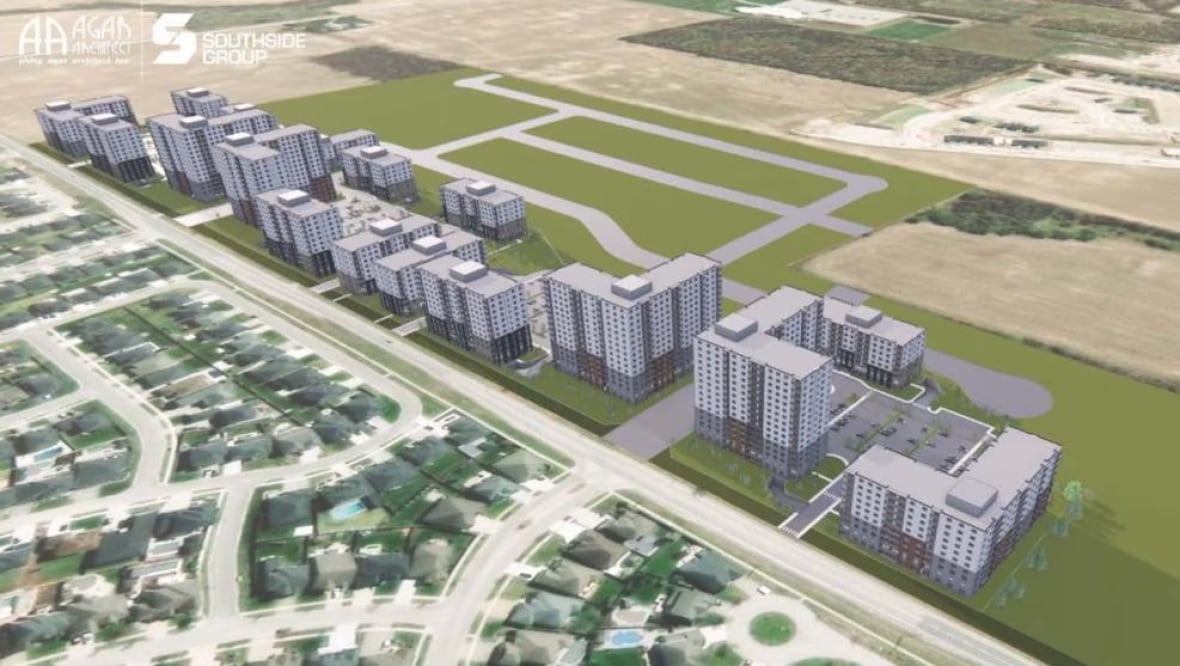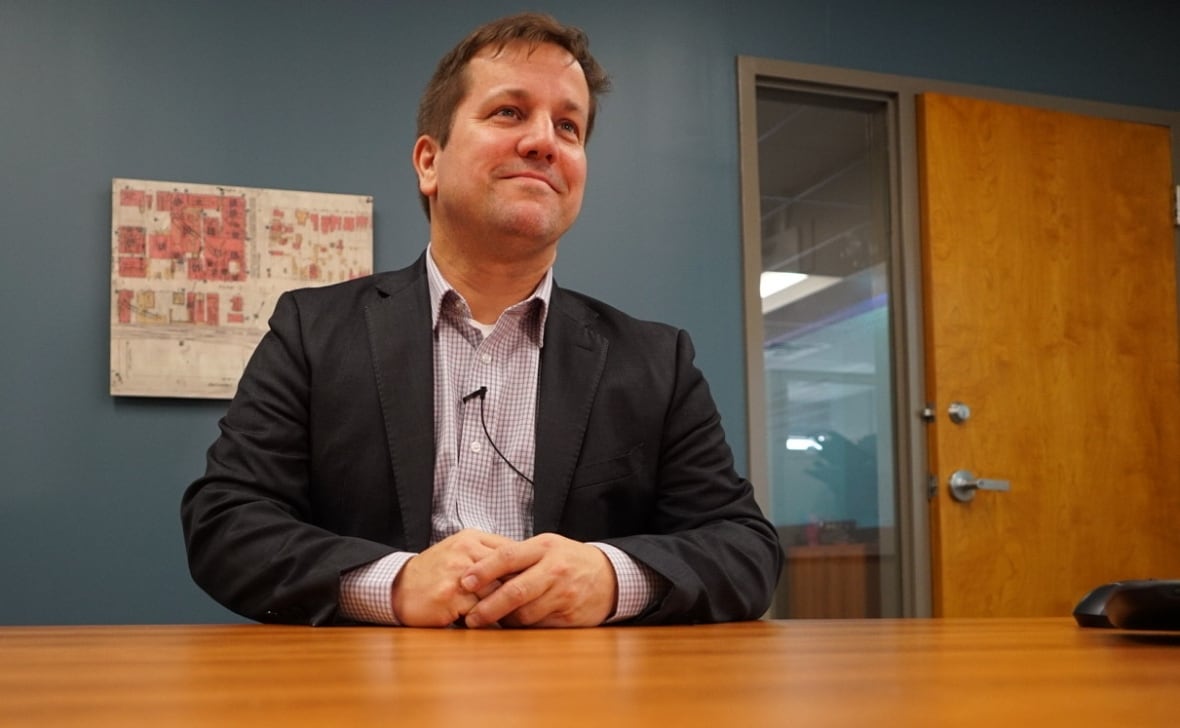Q&A: London is making big development moves. How are they doing?

As London, Ont., continues to grow, city politicians are faced with many decisions about development approvals and the urban boundary.
This week, councillors approved a major development on the southwest edge of the city that was met with opposition, raising questions about the balance between growing up and growing out.
Jason Gilliland is a professor of geography and environment at Western University, and the director of Western's Urban Development Program. He joined London Morning host Andrew Brown to talk about the latest decisions and how London is responding to its population growth.
The following has been edited for length and clarity.
Andrew Brown: So let's start with this development near Pack Road that was approved at council: 4,000 homes, a mixture of townhomes, apartment buildings and houses. What do you think of it?
Jason Gilliland: Well, I'm not surprised they approved it. I think it will bring a lot of units into London's housing supply, which we desperately need. Do I have reservations? Am I surprised it's controversial? No, I'm not surprised at all. It's pretty massive for that area, and there are a lot of decisions that still need to be made about it.
AB: So what kind of reservations do you have?
JG: I've only seen the elevations — the 3D renderings — and when you compare them to the single-family dwellings across the street, yeah, it looks pretty big. It looks out of place. But more importantly, I'm worried about the infrastructure. A development like this needs new sewers, water mains, and all those kinds of things. You also need to think about the environmental impact and, especially, transportation. Right now, if you were to take the bus from that area, it would take you over an hour to get anywhere.

AB: Some councillors were talking last night about how neighbourhoods that have already been built still don't have the transit they were promised years ago. So it takes a while for things to catch up. More broadly, this idea of building on the edges of town, do you think London is going about it the right way?
JG: Yes, I do, actually. I think we need to build up and out. And when we build out, we also need to build up. We can't just imagine that our housing problem will be solved by towers downtown, and we can't keep solving it by building more single-family homes on the outskirts. This is a step in the right direction. But we just have to get the mix right.
LISTEN | Jason Gilliland on London's ongoing development ambitions:
AB: Do you have any thoughts on what the right mix would look like? Or is it a case-by-case basis?
JG: I think it's case by case, but we do need a mix. We need more complete communities, some high-rises, some mid-rises, some townhomes and some single-family dwellings. We can't just build a few high-rises and hundreds of single-family homes and call it a day. Housing for all means housing of all different forms.
AB: Are there any lessons we can learn from other Canadian cities that have been through similar growth spurts?
JG: Yes, definitely. The lessons come from cities that are bigger than us and that have dealt with these issues earlier. Sustainability and transport systems are key. We have a city just down the road, Kitchener-Waterloo, that built a light rail system that has proven fantastic at guiding development. Other smaller cities like Saskatoon are also doing well, particularly in their west end. Cities that are managing growth effectively are thinking about mid-rises, townhouses and a strong housing mix.

AB: You've mentioned transit a couple of times. Do you think we need to be having different conversations about transit in this city?
JG: Absolutely. It takes a long time to get anywhere, even for someone like me who lives downtown. If we want all kinds of people to live on the fringe, we need to ensure they can get to the hospital or major workplaces in under an hour.
There will be timing issues. This development alone is going to take over a decade. So we need to think about complete communities. Where are these people going to go to school? Where will they rest? What are the green spaces in the area? And how are they going to get to work? It's not just about building towers and expecting everyone to come.
AB: Does London have the space it needs to keep up with the growth we're experiencing?
JG: Yes, I think we do. We're actually blessed with space. We're not hemmed in by mountains or oceans. But we have to think carefully about how we use that space. We can't keep using prime farmland.
This is a step in the right direction, in the sense that it's building more intensely within the space we already have, inside the urban growth boundary. So yes, I do think we can do it.
cbc.ca





